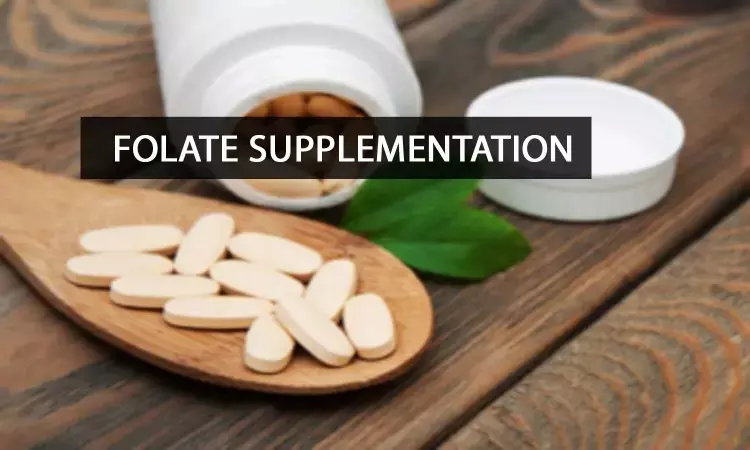- Home
- Medical news & Guidelines
- Anesthesiology
- Cardiology and CTVS
- Critical Care
- Dentistry
- Dermatology
- Diabetes and Endocrinology
- ENT
- Gastroenterology
- Medicine
- Nephrology
- Neurology
- Obstretics-Gynaecology
- Oncology
- Ophthalmology
- Orthopaedics
- Pediatrics-Neonatology
- Psychiatry
- Pulmonology
- Radiology
- Surgery
- Urology
- Laboratory Medicine
- Diet
- Nursing
- Paramedical
- Physiotherapy
- Health news
- Fact Check
- Bone Health Fact Check
- Brain Health Fact Check
- Cancer Related Fact Check
- Child Care Fact Check
- Dental and oral health fact check
- Diabetes and metabolic health fact check
- Diet and Nutrition Fact Check
- Eye and ENT Care Fact Check
- Fitness fact check
- Gut health fact check
- Heart health fact check
- Kidney health fact check
- Medical education fact check
- Men's health fact check
- Respiratory fact check
- Skin and hair care fact check
- Vaccine and Immunization fact check
- Women's health fact check
- AYUSH
- State News
- Andaman and Nicobar Islands
- Andhra Pradesh
- Arunachal Pradesh
- Assam
- Bihar
- Chandigarh
- Chattisgarh
- Dadra and Nagar Haveli
- Daman and Diu
- Delhi
- Goa
- Gujarat
- Haryana
- Himachal Pradesh
- Jammu & Kashmir
- Jharkhand
- Karnataka
- Kerala
- Ladakh
- Lakshadweep
- Madhya Pradesh
- Maharashtra
- Manipur
- Meghalaya
- Mizoram
- Nagaland
- Odisha
- Puducherry
- Punjab
- Rajasthan
- Sikkim
- Tamil Nadu
- Telangana
- Tripura
- Uttar Pradesh
- Uttrakhand
- West Bengal
- Medical Education
- Industry
Bacterial Vaginosis Risk Linked to Folate Levels in American Women

Bacterial vaginosis (BV) is a prevalent infection affecting women of reproductive age, accounting for a significant percentage of global infections. The implications of this study suggest that folate supplementation could play a vital role in the prevention and management of BV. The findings were published in BMC Infectious Diseases.
The study, conducted using data from the 2001-2004 National Health and Nutrition Examination Survey (NHANES) program, encompassed 1,954 participants. Researchers employed multiple logistic regression to analyze the association between serum folate, RBC folate, and BV risk, taking into account covariates such as race, age, education level, and body mass index in adjusted models. To ensure robustness, the researchers also performed stratified analyses across different populations.
The findings of this cross-sectional study revealed a significant inverse relationship between serum folate and RBC folate levels and the risk of BV. After applying full adjustment for covariates, the results indicated that the risk of BV decreased by 35% in the highest serum folate group (OR=0.65, 95% CI: 0.510.83, p=0.0007) and by 32% in the highest RBC folate group (OR=0.68, 95% CI: 0.530.87, p=0.0023), compared to their respective lowest groups.
By reducing the risk of BV, folate supplementation might offer a simple and accessible approach to improve women's reproductive health and well-being. However, further research and clinical trials would be necessary to establish causality definitively and to determine the optimal folate dosage for BV prevention.
Folate, a B-vitamin essential for numerous bodily functions, has long been recognized for its significance during pregnancy and fetal development. Its importance in maintaining healthy red blood cells and preventing neural tube defects has led to the inclusion of folic acid in prenatal supplements and fortified foods. This new study adds to the growing body of research on folate's potential health benefits beyond pregnancy-related concerns.
Source:
Cui, T.-T., Luo, J., Deng, R.-L., Yang, Y.-T., Yin, Y.-W., Chen, X.-F., Chen, H.-K., Liao, W.-Z., Huang, Z.-M., Deng, X.-Y., & Guo, X.-G. (2023). Negative associations between folate and bacterial vaginosis in the NHANES 2001 to 2004. In BMC Infectious Diseases (Vol. 23, Issue 1). Springer Science and Business Media LLC. https://doi.org/10.1186/s12879-023-08318-5
Neuroscience Masters graduate
Jacinthlyn Sylvia, a Neuroscience Master's graduate from Chennai has worked extensively in deciphering the neurobiology of cognition and motor control in aging. She also has spread-out exposure to Neurosurgery from her Bachelor’s. She is currently involved in active Neuro-Oncology research. She is an upcoming neuroscientist with a fiery passion for writing. Her news cover at Medical Dialogues feature recent discoveries and updates from the healthcare and biomedical research fields. She can be reached at editorial@medicaldialogues.in
Dr Kamal Kant Kohli-MBBS, DTCD- a chest specialist with more than 30 years of practice and a flair for writing clinical articles, Dr Kamal Kant Kohli joined Medical Dialogues as a Chief Editor of Medical News. Besides writing articles, as an editor, he proofreads and verifies all the medical content published on Medical Dialogues including those coming from journals, studies,medical conferences,guidelines etc. Email: drkohli@medicaldialogues.in. Contact no. 011-43720751


